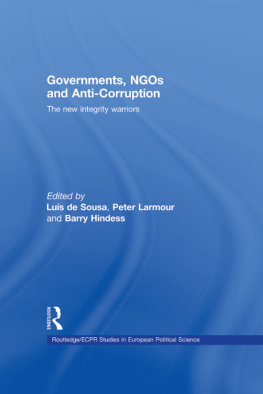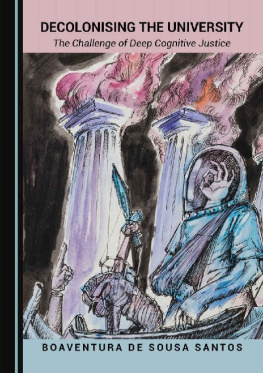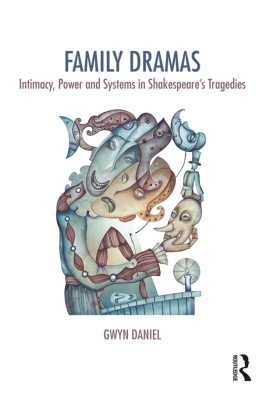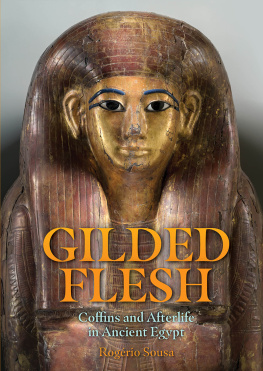Sousa - At Home in Shakespeares Tragedies
Here you can read online Sousa - At Home in Shakespeares Tragedies full text of the book (entire story) in english for free. Download pdf and epub, get meaning, cover and reviews about this ebook. City: London, year: 2016;2010, publisher: Taylor and Francis, genre: Home and family. Description of the work, (preface) as well as reviews are available. Best literature library LitArk.com created for fans of good reading and offers a wide selection of genres:
Romance novel
Science fiction
Adventure
Detective
Science
History
Home and family
Prose
Art
Politics
Computer
Non-fiction
Religion
Business
Children
Humor
Choose a favorite category and find really read worthwhile books. Enjoy immersion in the world of imagination, feel the emotions of the characters or learn something new for yourself, make an fascinating discovery.
- Book:At Home in Shakespeares Tragedies
- Author:
- Publisher:Taylor and Francis
- Genre:
- Year:2016;2010
- City:London
- Rating:4 / 5
- Favourites:Add to favourites
- Your mark:
- 80
- 1
- 2
- 3
- 4
- 5
At Home in Shakespeares Tragedies: summary, description and annotation
We offer to read an annotation, description, summary or preface (depends on what the author of the book "At Home in Shakespeares Tragedies" wrote himself). If you haven't found the necessary information about the book — write in the comments, we will try to find it.
Sousa: author's other books
Who wrote At Home in Shakespeares Tragedies? Find out the surname, the name of the author of the book and a list of all author's works by series.
At Home in Shakespeares Tragedies — read online for free the complete book (whole text) full work
Below is the text of the book, divided by pages. System saving the place of the last page read, allows you to conveniently read the book "At Home in Shakespeares Tragedies" online for free, without having to search again every time where you left off. Put a bookmark, and you can go to the page where you finished reading at any time.
Font size:
Interval:
Bookmark:
AT HOME IN SHAKESPEARES TRAGEDIES
For David Bergeron
A f vida e a vida para mim fS. Geraldo Majella (17261755).
GERALDO U. DE SOUSA
University of Kansas, USA

First published 2010 by Ashgate Publishing
Published 2016 by Routledge
2 Park Squre, Milton Park, Abingdon, Oxon OX14 4RN
711 Third Avenue, New York, NY 10017, USA
Routledge is an imprint of the Taylor & Francis Group, an informa business
Copyright Geraldo U. de Sousa 2010
Geraldo U. de Sousa has asserted his right under the Copyright, Designs and Patents Act, 1988, to be identified as the author of this work.
All rights reserved. No part of this book may be reprinted or reproduced or utilised in any form or by any electronic, mechanical, or other means, now known or hereafter invented, including photocopying and recording, or in any information storage or retrieval system, without permission in writing from the publishers.
Notice:
Product or corporate names may be trademarks or registered trademarks, and are used only for identification and explanation without intent to infringe.
British Library Cataloguing in Publication Data
Sousa, Geraldo U. de, 1952
At home in Shakespeares tragedies.
1. Shakespeare, William, 15641616 Tragedies. 2. Shakespeare, William, 15641616 Settings. 3. Dwellings in literature.
I. Title
822.33dc22
Library of Congress Cataloging-in-Publication Data
Sousa, Geraldo U. de, 1952
At home in Shakespeares tragedies / by Geraldo U. de Sousa.
p. cm.
Includes bibliographical references and index.
ISBN 978-0-7546-6886-2 (hardback: alk. paper)
1. Shakespeare, William, 15641616Tragedies. 2. EnglandSocial life and customs16th century. 3. EnglandSocial life and customs17th century. 4. FamiliesEnglandHistory16th century. 5. FamiliesEnglandHistory17th century. 6. Home in literature. 7. Families in literature. I. Title.
PR2983.S68 2010
822.33dc22
2009050475
ISBN: 9780754668862 (hbk)
As a meditation or memory exercise, I frequently revisit in my minds eye my childhood home in the Brazilian highlands, visualizing every detail I can. Our house became the center of our family life and the source of our familys livelihood. Built when I was two years old, the house and adjacent buildings functioned as our family home, my fathers road-side caf, and an all-purpose Brazilian vendaa family-run entrept, retail shop, and general store. Such multi-purpose compounds can be found around the world, early examples of which include the housing compound in eighteenth-century Liberia, West Africa. Eighteenth- and nineteenth-century accounts of travel to the interior of Brazil include numerous references to similar vendas.
My familys estate was known as Estiva, a word derived from Latin, stivare, to estivate, to reside during the summer. In regional Portuguese, estiva also means a wooden bridge; and the verb estivar refers to the stowing, loading, and unloading of a ship. Although Estiva was my parents year-round residence, far away from any fluvial or sea port, and had no bridge, the name seemed oddly suitable: my school-age siblings and I, who attended school in nearby towns, used to return home only on weekends, for school holidays, and during the summer. Buses, private cars, trucks, and caravans of pack animals, following ancient trade routes, would regularly make a stop at our home, which bridged many worlds.
Eventually, home became a cluster of associations revolving around a commercial center, family life, and the uncultivated, wild countryside. Whenever I was home, I wanted to explore Estiva. Perhaps against their better judgment, my parents always granted permission for me to organize and lead day-long expeditions into the surrounding areas, provided that at least one adult came along. Almost anything would serve as an excuse for exploration, although I often made a case based on my credentials as a student of science and on the uncontestable scientific significance of the expedition: to collect exotic plants and flowers, study geological formations and geographical landmarks, and watch the birds and wildlife. Frequently, however, I simply argued that I wanted to gather wild mangaba, the fruit of the Hancornia speciosa, everybodys favorite.
Estiva was my little corner of the universe. It afforded shelter, refuge, and security; yet it also seemed to abut not just the great unchartered wilds of the Brazilian interior but a mysterious, dangerous, sometimes tragic world, fraught with human drama. A close encounter with a rattlesnake in our own backyard, sightings of an ona-pintada (Panthera onca) or a very large sucuri or anaconda (Eunectes murinus), or reports of the dangers posed by the deadly venomous urutu (Bothrops alternata) were frequent reminders that a house can give us but a provisional sense of stability.
From time to time, a shocking event would dislocate our habits of mind and shake our sense of domestic security and stability. When I was growing up, I witnessed much suffering and poverty around us, but our home was a healing place, a place where those in trouble would stop for help, sometimes seeking transportation to the hospital in Patos de Minas or just to refresh themselves on a long journey. A complicated network of routes seemed to intersect our world, including the caravans of pack animals transporting merchandise to the deep interior, or the so-called paus-de-arara, truckloads of migrants who had left abject poverty behind and were following a dream of new life and opportunity in Brasilia, the newly-erected capital on the distant central plateau.
These childhood experiences, memories, and reflections have imbued the writing of this book with the passions of living. The anthropologist James Clifford must surely be right when he speaks of the roots and the routes of our lives. Estiva represents my deep roots but it also positioned my life in an intricate web of mysterious routes. With this childhood home, I associate solitude, introspection, and exploration of the natural world, as well as a vibrant sense of being part of a family, household and community. I am grateful to my parents for providing us the shelter, security and protection of a loving home and the comforts of life. Above all, our home was a place of rest, healing and rejoicing. I also thank all those whose lives intersected mine for a profound sense of spirituality, a love for story-telling, and the memories that still enrich my life and inform and guide my many pursuits.
In the process of researching and writing At Home in Shakespeares Tragedies, I have incurred many debts of gratitude. First I would like to thank Xavier University, Cincinnati, Ohio, for granting me a sabbatical leave and therefore making it possible for me to begin research. My colleagues at Xavier were unfailingly supportive, and I want to thank Norman Finkelstein, Ernie Fontana, and Provost Roger Fortin in particular, as well as my friends in Xaviers Office of Spiritual Development and in the Society of Jesus, especially Leo Klein. At the University of Kansas, I want to thank Dorice Elliott, chair of the English Department (20042009), especially for her patience and kindness to me; Richard F. Hardin, for reading drafts of the manuscript and sharing his vast knowledge and experience; Mary Rieser Davidson, for her helpful comments and suggestions on the chapter on
Next pageFont size:
Interval:
Bookmark:
Similar books «At Home in Shakespeares Tragedies»
Look at similar books to At Home in Shakespeares Tragedies. We have selected literature similar in name and meaning in the hope of providing readers with more options to find new, interesting, not yet read works.
Discussion, reviews of the book At Home in Shakespeares Tragedies and just readers' own opinions. Leave your comments, write what you think about the work, its meaning or the main characters. Specify what exactly you liked and what you didn't like, and why you think so.












